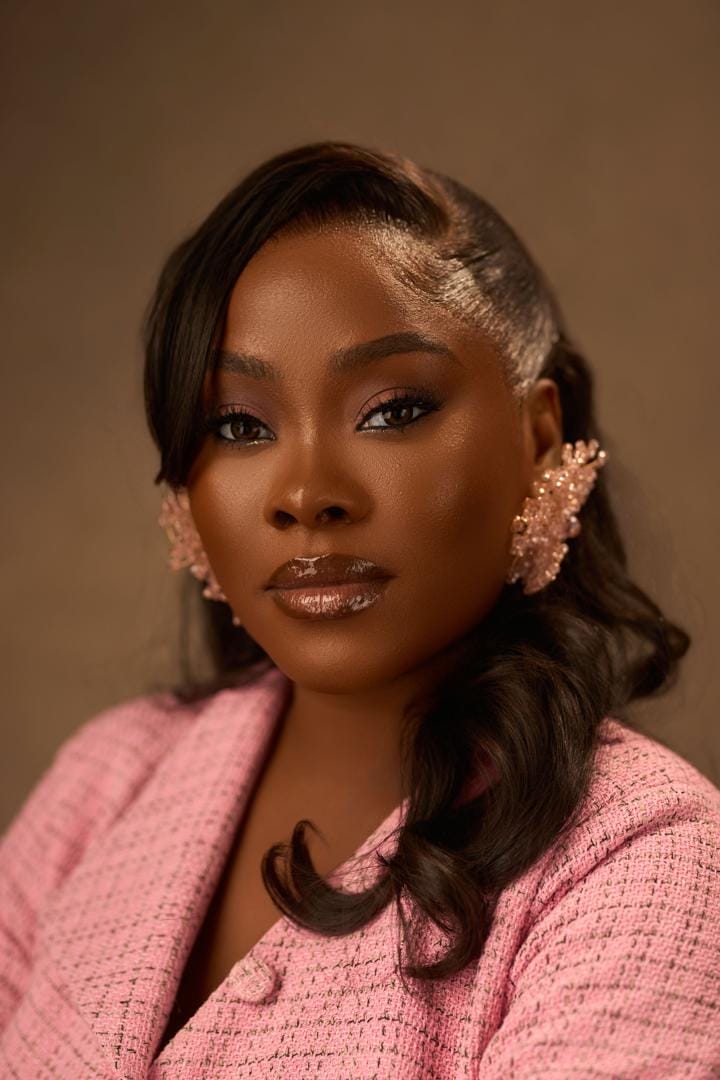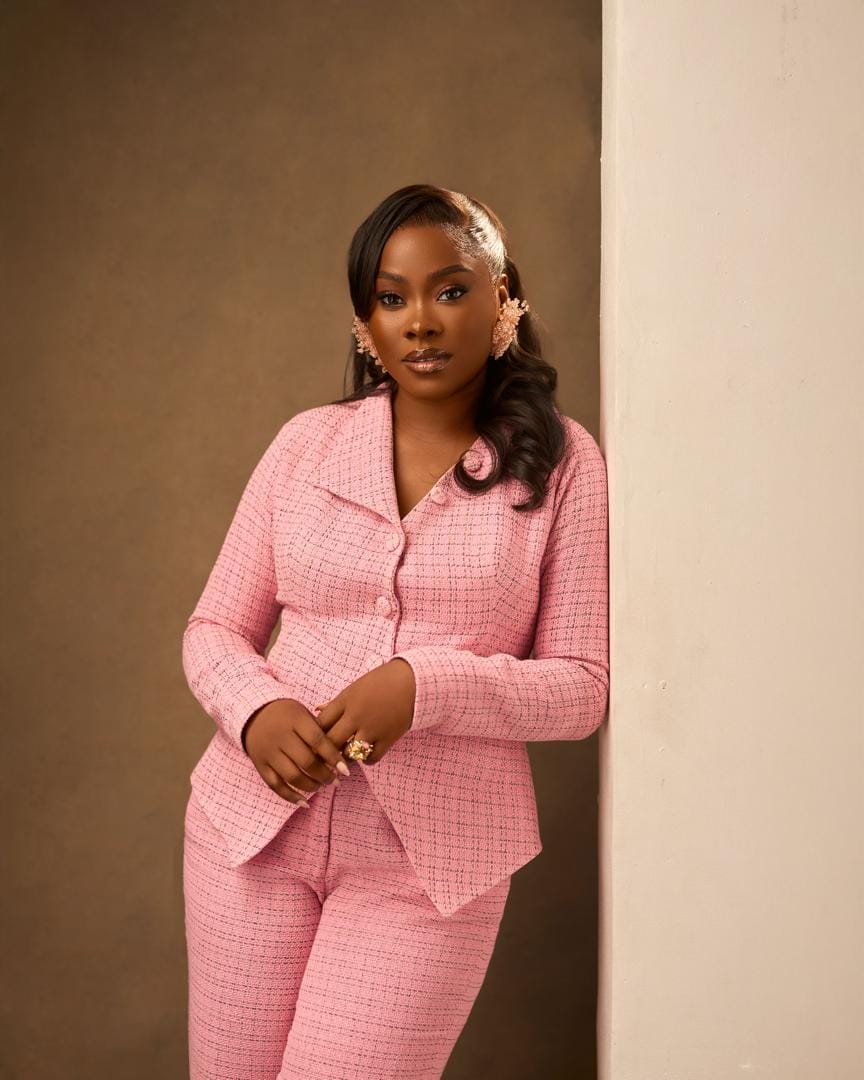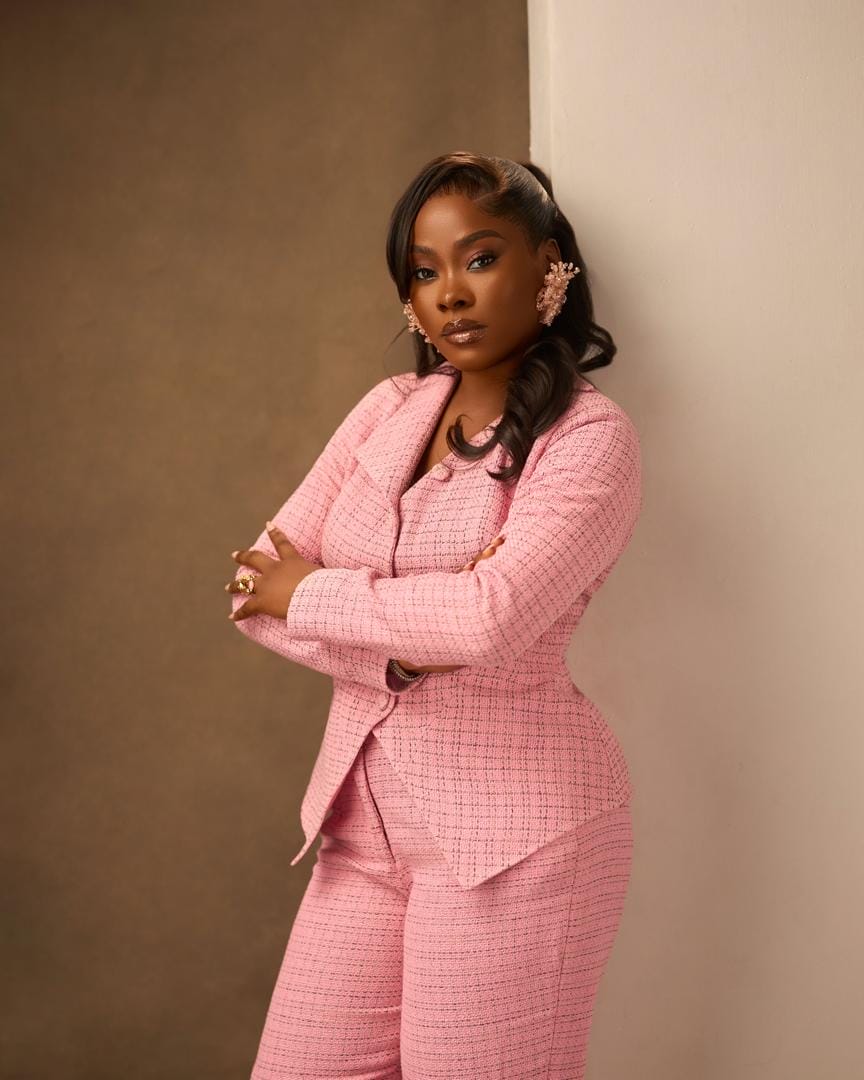In a world where creativity is often reduced to aesthetics, Bridget Agba has built a career proving that fashion is so much more, it is an economic force, a cultural storyteller, and a tool for rewriting Africa’s narrative on the global stage.
From starting out with a simple belief that creativity could create jobs, to leading a globally competitive apparel brand, her journey reflects grit, vision, and an unwavering sense of purpose.
What makes Bridget’s story even more powerful is her ability to balance bold innovation with social responsibility. She didn’t just create garments; she created opportunities. She entered fashion not to chase applause, but to build lives. And in doing so, she has become a beacon of hope for entrepreneurs, especially women, across Africa and beyond.

Her path has not been without challenges, navigating infrastructure gaps, market undervaluation, and the absence of mentors, but she turned every obstacle into a stepping stone.
Today, Bridget stands as a mentor herself, shaping the next generation of entrepreneurs while showing the world that African fashion is not just catching up, it is setting new standards.
In this interview, Bridget shares her journey, challenges, victories, and vision for the future of Africa’s creative economy.
CA: Bridget, you’ve built a remarkable career at the intersection of entrepreneurship, fashion innovation, and social impact. That’s no small feat! Can you take us back to how it all began?
Bridget: It began with a single belief: that creativity could be an economic driver, not just an expression of beauty. Fashion was my entry point, but very early I saw that every dress I made could be more than clothing, it could create jobs, tell cultural stories, and rewrite narratives about Africa. I didn’t start out chasing global recognition; I started out chasing impact, and that’s what keeps pulling me forward.
CA: That’s such a powerful foundation. Now, leading a globally competitive apparel brand and shaping initiatives in the creative economy takes grit and vision. What was your journey like, and were there any key mentors or role models who guided you along the way?
Bridget: My journey has been one of building where there were no blueprints. There weren’t many role models in large-scale garment production in Africa to copy from, so I had to learn by doing, by failing, by starting again, by being bold enough to insist that an African brand could meet global standards.
My greatest mentors were often the challenges themselves: each obstacle became a teacher that stretched me, sharpened me, and revealed strength I didn’t know I had.
CA: That resilience really shines through. The creative economy is constantly evolving and highly competitive. What challenges did you face in building Jochlieu Apparel International, and how did you push through them?
Bridget: The greatest challenge was infrastructure, not just physical, but systemic. Supply chains were unreliable, skills gaps were wide, and the market often undervalued local production. I pushed through by refusing to let those realities dictate the future.
I invested in training, I built internal systems where external ones failed, and I positioned Jochlieu not as a local brand trying to catch up, but as a global player setting its own standards. That shift in mindset made all the difference.
CA: That mindset shift is inspiring. Let’s go back a bit, your career has been built on persistence and impact. What kept you motivated, especially during the tough early days of entrepreneurship?
Bridget: What kept me going was the knowledge that I wasn’t just building for myself. Every young tailor I trained, every job I created, every product we exported meant that we were rewriting what was possible for African fashion.
That sense of purpose, knowing that my work could transform not just my life but entire communities, was more powerful than any setback.

CA: That sense of purpose is so deeply moving. How has your background and experience shaped the way you handle challenges in fashion, enterprise growth, and stakeholder engagement today?
Bridget: My background taught me to hold tension with grace: to be creative yet structured, bold yet disciplined. When challenges come, I don’t just see problems; I see systems that need to be redesigned.
That’s why my approach to stakeholders is rooted in collaboration, I bring not just ambition to the table, but solutions that can move industries forward.
CA: You’ve clearly become a role model for so many. You’ve mentored entrepreneurs and inspired countless women in the creative space. How does it feel knowing your journey and initiatives are guiding the next generation?
Bridget: It feels like the truest measure of success. Awards and recognition are valuable, but seeing a young entrepreneur say, “Because you did it, I believe I can too” that is legacy.
For me, mentorship is not about giving back, it’s about building forward. The next generation is not competition; they are the continuity of everything I’ve fought for.
CA: Beautifully said. Speaking of recognition. you’ve received remarkable honors such as being named among the Top 100 Women in African Business and the African Beauty Summit Award (2025). What do these honors mean to you personally and professionally?
Bridget: They are affirmations, but they are also reminders. Personally, they remind me of how far I’ve come. Professionally, they remind me of the responsibility I carry, to keep raising the bar, to keep creating opportunities, and to ensure that recognition is not the end of the journey, but fuel for greater impact.
CA: That balance of humility and responsibility is powerful. Looking ahead, what’s next for you in your career? Are there any exciting projects, global milestones, or initiatives on the horizon?
Bridget: The next chapter is about building scale with intention. I’m working to position Jochlieu Apparel International as a pan-African garment hub, a place where global brands can source with confidence, and African talent can thrive with dignity.
I’m also focused on bridging the corporate and entrepreneurial worlds, because I believe that by bringing structured global systems into the creative economy, we can unlock billions in value that Africa has barely tapped into.
CA: That’s a big vision, and exciting! In your experience, what’s one common misconception about the creative industry, fashion entrepreneurship, or social impact strategy that you’d like to correct?
Bridget: That creativity and seriousness don’t mix. Too many people still see fashion as “soft” or secondary, when in reality it is a billion-dollar global industry that shapes economies, identities, and policies.
To treat the creative economy as anything less than a driver of growth is to miss one of the greatest opportunities of our time.

CA: Absolutely. To wrap up on a personal note, if you could give just one piece of advice to anyone dreaming of making an impact in the creative economy, what would it be?
Bridget: Anchor your passion in purpose, and then build the structures to sustain it. Inspiration will get you started, but systems will keep you standing. If you dream of impact, dream boldly, but also build wisely.




